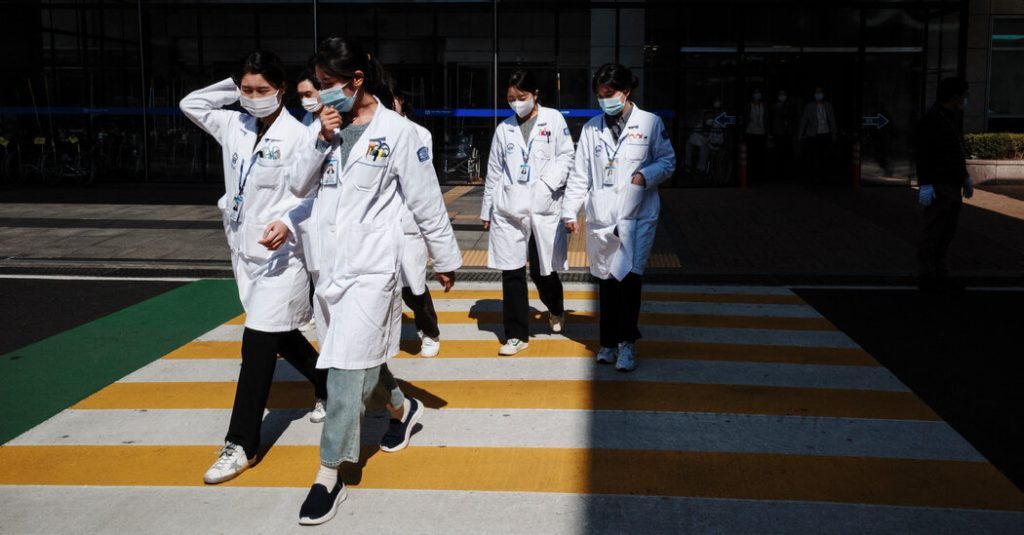Frustration is on the rise in South Korea six weeks after thousands of residents and interns at hospitals went on strike. Patients are facing postponed, canceled, or refused surgeries and treatments, with over 2,000 complaints filed. The national health ministry has reported hospitals closing wards, nurses taking on physician duties, and military doctors being deployed. The root of this conflict lies in President Yoon Suk Yeol’s proposal to increase medical school admissions to address the physician shortage, a plan that striking doctors believe will not solve the healthcare system’s fundamental issues. Critics also accuse doctors of trying to maintain their elite status and income by restricting the number of physicians.
South Korea has fewer doctors per capita than many developed countries, with 2.6 doctors per 1,000 people compared to an average of 3.7 in OECD countries. A significant portion of the public supports increasing medical school admissions, with polls showing that 43% believe the striking physicians should face legal consequences. Doctors are considered a wealthy and powerful group in Korean society, and public sentiment towards them is complex. While admired and respected for their work, doctors are also subject to envy and anger from some due to their privileged position.
The prestige of doctors in South Korea is attributed to the country’s belief in educational hierarchy, where top students often choose medicine for its social status and financial stability. Patients in South Korea have easy access to affordable healthcare, leading to a system where patients can “medical shop” for highly regarded physicians who have attended top schools. The striking trainee doctors work long, grueling hours for low pay, while critics question their motives for opposing an increase in medical school admissions. The Chosun Ilbo newspaper suggested that doctors may be motivated by financial gain, rather than genuine concern for patients.
The current standoff between the government and doctors echoes a similar situation in 2020 when President Moon Jae-in proposed a modest increase in medical school admissions. The government eventually backed down during the Covid pandemic due to a strained medical system. However, public trust in physicians in South Korea tends to rebound quickly despite such disputes. While some patients blame the government for the current standoff, President Yoon’s plan aims to increase medical school admissions and improve healthcare services. Critics argue that the plan was hastily devised to secure votes in upcoming legislative elections and may not effectively address the physician shortage.
Civic groups are urging both doctors and the government to find a resolution to the dispute to prevent harm to patients. President Yoon has defended his plan and invited doctors to submit a counterproposal, offering to engage in meaningful discussions. While Dr. Kim believes that public anger towards doctors may currently be high, South Koreans will still aspire for their children to become doctors in the future regardless of the outcome of the dispute. The complex dynamics between doctors, the government, and the public in South Korea reflect a broader societal reverence for the medical profession despite ongoing conflicts.


